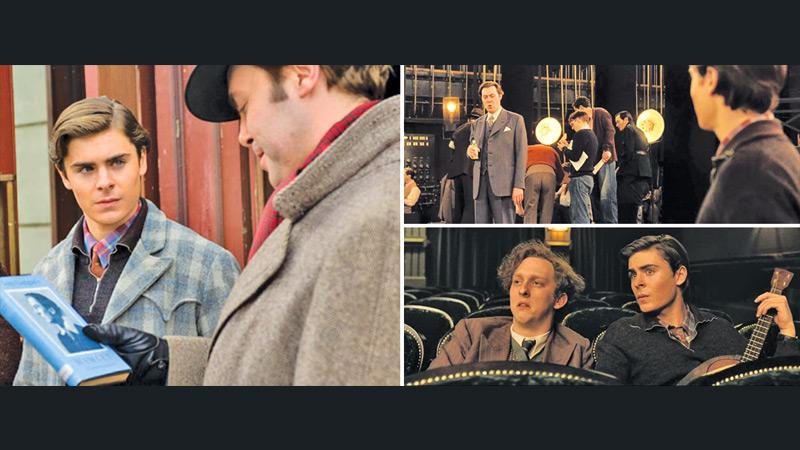
A means by which classicism in art is established through media of the modern age is when a country’s culture makes mass media part of not only their entertainment, communication and information pathways, but has media crafted as the voice of their ‘age and ethos’.
A society that fosters the media to portray ‘who they are’ to ‘the world’ ‘enfranchises’ mass media, without any paper ballot or legislative process, to be their ‘voice’, their officially ‘unelected’ yet practically ‘mandated’ representative to the ‘masses’ outside their borders.
I believe those are the foundations of intimacies and correlations art and media have in the USA. They re-echo across generations through new works of art, labels of colossal figures and the tunes of their timeless classics which defined the age from a cultural standpoint when the USA began making its rise as the superpower in ‘world media’.
Inerasable figure
Orson Welles is an inerasable figure in the annals of art and media in the USA. My first encounter with the legacy he bequeathed to the world of cinema was watching ‘Citizen Kane’ as a teenager, on VHS.
Like most classics of US cinema that have qualified into the ‘masterpiece’ genre, I had heard of ‘Citizen Kane’ and of Orson Welles, before I watched it. The film ‘Me and Orson Welles’ directed by Richard Linklater, is based on the novel by the same title by Robert Kaplow. It shows the fleeting shot at fame a teenager named Richard Samuels is given when selected to play a role in Orson Welles’s production of ‘Julius Caesar’.
Welles portrayed impressively by Christian McKay is the magnetic and megalomaniac force of ‘gravitation’ that makes the ‘world’ created in the story possible. Zac Efron as Richard Samuels delivers a praiseworthy performance which makes him the endearing protagonist and the arrogant, conceited and exploitative Welles, the binary antagonist despite the latter’s ‘legend status’. The film is by all means worth watching if you enjoy the ‘drama’ genre movies.
‘Me and Orson Welles’ is what is classified in genre as a ‘period drama’. It’s not history per se but a fiction built on elements from history. Was Welles in real life, actually the manipulative, scheming, selfish despot that the film makes him out to be?
For the record it must be noted ‘Me and Orson Welles’ is certainly not a biopic. But the largeness of Welles’s personality as a rising force in art and media is not underplayed. And underneath the girth of the rising colossus how underlings get stamped out once their shelf life expires, is established clearly. In a society that birthed the new age ethos of reverence to consumerism, ‘Me and Orson Welles’, to me, epitomises Welles as a merciless merchant trading on the merchandise called status and ego as currencies that open doors through the channels of art and media.
Period drama
This is not to say that Welles is the ‘efficient capitalist’ who embodies the American sense of industrialism in the field of entertainment media. Far from it; he in fact is the belligerent artist who indulges in his own ego trips and thirst for reverence, which worries the theatre owner who relies on Welles as the director to efficiently execute the ‘project’ to make it financially viable.
What must not be overlooked is that welded with that vein of artistic vanity is the aggressive drive in Welles’s character to ‘market’ his ‘image’ towards ‘cult status’, as a ‘personality’ in the arts and media, which stands in line with the American ethos of materialism bound values.
Welles in certain ways was possibly some new-age seer who foresaw the powers of mass media and its pervasive industrialism in the economic powerhouse the USA was fast becoming in the early part of the 20th century.
While we readily look towards historical figures from the ages of kings, where art was conceived as works to endure without any credit to the artist, how many ‘modern-age legends’ of our own can we see compelling Sri Lankan creators of art and media to create stories capturing that age of collective arrival to 20th century urbanism, and gradual mediatisation in society?
Will the golden voices of radio and faces of theatre that became household names in urban society form foundations for creative works coalescing historical fact with license for artistic conceptualism? I hope we aren’t too far off from when our art of today begins to celebrate Sri Lankan figures from the fields of art and media who were pioneers and veterans of a generation ago; by reimagining their worlds through works of fiction and film.
Welles portrayed impressively by Christian McKay is the magnetic and megalomaniac force of ‘gravitation’ that makes the ‘world’ created in the story possible. Zac Efron as Richard Samuels delivers a praiseworthy performance which makes him the endearing protagonist and the arrogant, conceited and exploitative Welles, the binary antagonist despite the latter’s ‘legend status’

